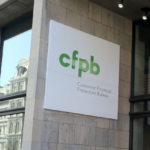-
 Navigating the Complex Landscape of Commercial Lending: Recent Trends and Insights Explore recent trends and insights in commercial lending, including increased demand, sustainability focus, and digital transformation impacting lenders and borrowers in the current market.
Navigating the Complex Landscape of Commercial Lending: Recent Trends and Insights Explore recent trends and insights in commercial lending, including increased demand, sustainability focus, and digital transformation impacting lenders and borrowers in the current market.
Congress Passes Sweeping Financial, Regulatory Reform Bill
- Tuesday, 29 May 2018
- Lending

Congress has passed what many observers consider the most sweeping financial and regulatory reform since the passage of the Gramm-Leach-Bliley Act in 1999. The legislation delivers "much-needed regulatory relief to Main Street banks and credit unions. This bill takes a major step toward allowing the banking system to serve the needs of American businesses and American families instead of working in the interest of Washington bureaucracy," said Jeb Hensarling (R-TX), chairman of the House Financial Services Committee.
While the legislation received support from both sides of the aisle, some Democrats Sen. Sherrod Brown (D-OH), ranking member of the U.S. Senate Committee on Banking, Housing, and Urban Affairs, was an outspoken opponent of the legislation and the signing of S.2155, or the Economic Growth, Regulatory Relief, and Consumer Protection Act.
He condemned the bill, which he derides as the The Dodd-Frank Roll Back Bill because in Brown's view it does next to nothing for consumers, while scaling back protections for homeowners and exposing taxpayers to another bank bailout, according to a press release.
“Today, special interests win again. The President signed into law a giveaway that loosens rules for the same big banks that helped crash the economy a decade ago, leaving Americans taxpayers responsible for a $239 billion bailout," said Brown. "Banks are making record profits and hardworking Americans shouldn’t have to pay for favors to Wall Street, foreign mega-banks and their lobbyists.”
The Congressional Budget Office (CBO) estimated that S.2155 will increase the federal deficit by $671 million because of the increased risk that a systemically important financial institution – a Wall Street or global mega-bank -- will fail.
[caption id="attachment_4848" align="alignleft" width="150"] President Trump signs financial regulatory reform bill.[/caption]
President Trump signs financial regulatory reform bill.[/caption]
Hensarling views the new legislation as a stepping stone and he called for "an additional package of bipartisan pro-growth capital formation provisions to unleash the full potential of our economy.”
issued the following statement upon attending a signing ceremony at the White House for S. 2155, which represents the most significant pro-growth financial regulatory reform package since the passage of Gramm-Leach-Bliley nearly a generation ago.
"Thanks to hard work and leadership in both the House and the Senate, this pro-growth, bipartisan package will provide much-needed regulatory relief to Main Street banks and credit unions. This bill takes a major step toward allowing the banking system to serve the needs of American businesses and American families instead of working in the interest of Washington bureaucracy. I look forward to continuing to work with my colleagues on both sides of the aisle and in both chambers to build on the progress we achieved here with an additional package of bipartisan pro-growth capital formation provisions to unleash the full potential of our economy.”
Read more...HMDA Review, CFPB's New Online Platform
- Sunday, 27 May 2018
- Lending

CFPB, Comptroller of the Currency, the Board of Governors of the Federal Reserve System and the Federal Deposit Insurance Corporation have announced that its supervisory examinations of 2018 HMDA data will be diagnostic. The objective is to help companies identify any weaknesses, and will credit good-faith efforts to comply.
Fully 5,800 financial institutions submitted their 2017 HMDA filings through the CFPB’s new online platform, according to Mick Mulvaney, acting director of the Bureau of Consumer Financial Protection, who was testifying before the Senate Committee on Banking, Housing and Urban Affairs.
[caption id="attachment_5251" align="alignleft" width="150"] CFPB to perform HMDA diagnostic reviews.[/caption]
CFPB to perform HMDA diagnostic reviews.[/caption]
The platform enables a financial institution to upload loan application registers, review edits, certify data, and submit data for the filing year without the manual processes required in past years. CFPB plans to review existing rules to find ways to ease undue burdens and protect consumer choice. The Bureau will structure itself and conduct operations in a way that reduces redundancy and makes the best use of resources.
“Above all, the Bureau must be efficient. That means I will organize the agency and conduct its operations in ways that reduce redundancy and make the most of our resources,” said Mulvaney. “For example, the Office of Fair Lending and Equal Opportunity is being moved to the Director’s Office, to become part of the Office of Equal Opportunity and Fairness. The Office of Fair Lending will continue to focus on advocacy, coordination, and education.”
The Bureau will continue to supervise and enforce fair lending laws through the soon-to-be-renamed Division of Supervision, Enforcement, and Fair Lending. There will be one office, not two, that handles enforcement matters, supervision policy, as well as supervision examinations. The aim is to ensure that enforcement and supervision more efficient, effective, and accountable.
In another change, the Bureau practice of “regulation by enforcement” has ceased. The Bureau will continue to enforce the law. The aim is for people to know what the rules are before the Bureau accuses them of violating them.
Read more...30-Year Client Will Migrate Home Equity Portfolio to Black Knight
- Friday, 18 January 2019
- Learning

Commerce Bank, a Midwest-based regional bank, will migrate its home-equity loan portfolio to Black Knight's MSP servicing system. The decision was made to take advantage of the savings and efficiencies gained when loans are serviced on one platform.
Commerce Bank, which has used the MSP system to service its first mortgages for 30 years, extended the agreement for seven more years to include first mortgages, home equity loans, and lines of credit.
"Black Knight's MSP system has served as the technology power behind Commerce Bank's first mortgage servicing business for decades, so it made sense for us to look at converting our home equity portfolio onto the system as well," said Jeff Gerner, senior vice president at Commerce Bank. "Using a single, integrated servicing platform both first mortgages and home equity products will allow us to focus on providing value to our customers, while creating operational efficiencies to help lower costs."
Also, Commerce Bank is using several servicing-focused analytics from Black Knight's new Actionable Intelligence Platform. The AIP delivers strategic, proactive and actionable analytics to the right people across an organization at the right time, so they know what action to take next.
MSP offers a robust and scalable end-to-end loan servicing system that helps clients manage all servicing processes, from payment processing and escrow administration, to customer service, default management and more. The system is scalable and includes experienced client support. Used to service more than 34 million active loans across the U.S. MSP helps servicers to increase operational efficiency, reduce operating costs and improve risk mitigation.
"We are delighted that Commerce Bank is extending our long-term relationship by leveraging the significant advantages of combining first mortgage and home equity servicing platforms onto MSP," said Joe Nackashi, president of Black Knight. "Our advanced and innovative technology, robust data and actionable analytics will help deliver the results Commerce Bank needs to optimize performance and keep expanding its business."
Read more...Austin Tops List of Hottest Commercial Property Markets
- Friday, 02 April 2021
- Commercial Lending

Austin, Texas, is No. 1 in the hearts of commercial real estate investors. So reports CultureMap Austin.
Read more...







